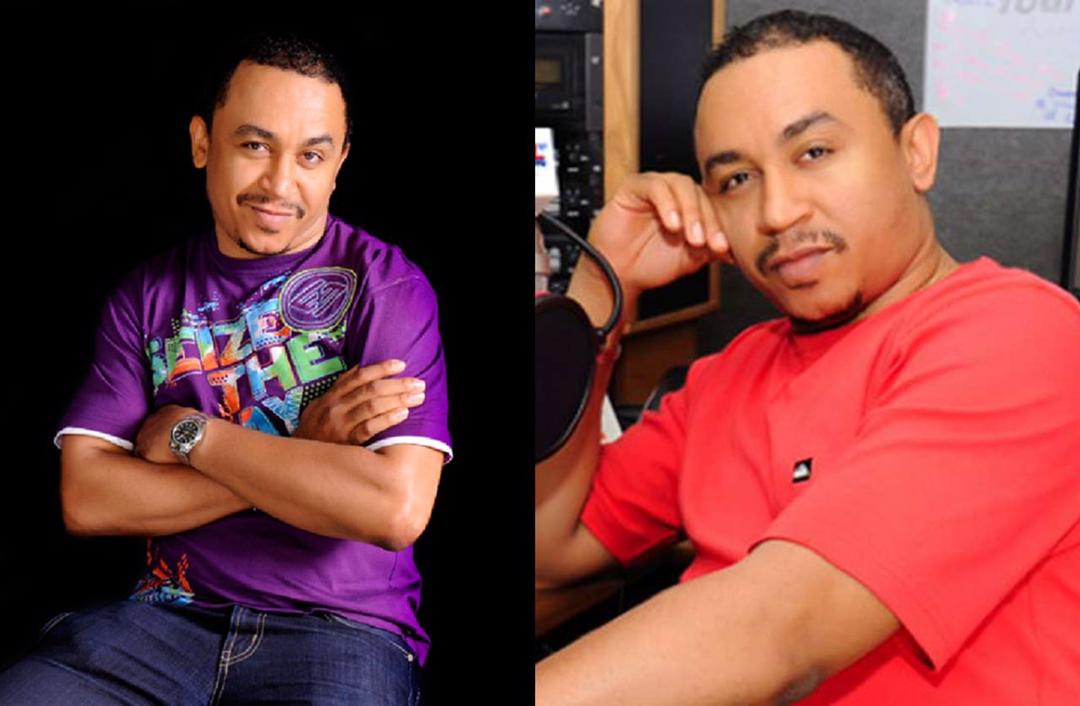
“We Go Commot Am Straight” – Daddy Freeze Sparks Massive Debate Over What He’d Do If His Teenage Daughter Got Pregnant

Controversial media personality, Ifedayo Olarinde, popularly known as Daddy Freeze, has once again ignited heated conversations online following his recent comments about teenage pregnancy and parenting. In a candid statement that has now gone viral, Daddy Freeze did not mince words when he revealed the tough stance he would take if his 16-year-old daughter ever got pregnant. His remark, made during one of his interactive live sessions, has triggered a storm of mixed reactions across social media, with some praising his honesty and others accusing him of promoting a dangerous and insensitive approach. In his words, Daddy Freeze said: “We dey go commot am straight. She made a mistake and we won’t make the mistake of putting her through the horror of raising a child she’s not ready for.” The broadcaster, known for his unapologetic delivery and no-holds-barred commentary, stood firm on the idea that a teenager at that age should not be saddled with the lifelong responsibilities of motherhood, especially when she is still a child herself.
The comment, which was delivered in his usual blend of Pidgin English and formal speech, quickly made its way into the spotlight as bloggers, fans, and critics picked it up, dissecting every word and intent behind it. While some saw his opinion as a harsh but necessary truth in the Nigerian context where teenage pregnancies often derail the lives of young girls, others considered it deeply problematic, calling it reckless and insensitive to the sanctity of life. Daddy Freeze has built a reputation for being outspoken, often choosing to tackle subjects many shy away from, especially when they intersect religion, morality, and social norms. This time, his take on teenage pregnancy has reopened long-standing debates about abortion, parental authority, and the place of morality in modern society.
On Twitter, Instagram, and TikTok, reactions came in fast. Some parents admitted they shared his sentiments, insisting they would never allow their teenage daughters to go through what they described as “life-altering consequences” of early motherhood. Others argued that while the situation is delicate, pushing for an abortion as a first response might traumatize the teenager even more. Several religious groups and pro-life advocates immediately criticized his stance, labeling it a dangerous ideology that disregards the value of human life. According to them, encouraging termination instead of exploring alternatives such as family support or adoption is morally wrong. For these groups, every life, no matter the circumstances of conception, should be protected.
On the flip side, many young people and progressive voices rallied behind Daddy Freeze, calling his view practical and rooted in the realities of Nigeria’s socio-economic climate. They highlighted how many teenage mothers often face stigmatization, abandonment by the fathers of their babies, lack of access to education, and lifelong struggles with poverty. For these supporters, preventing such an outcome by making the hard choice of terminating the pregnancy was seen as the lesser evil. In their words, forcing a 16-year-old to raise a child she is not mentally, financially, or emotionally prepared for could create a ripple effect of more trauma and suffering, not only for the girl but for the child too.
The conversation also exposed generational divides. Older Nigerians, especially those who grew up with stricter religious and cultural backgrounds, were more likely to condemn Daddy Freeze’s remarks outright. They emphasized that in the past, communities rallied around young mothers, ensuring they were supported rather than abandoned. Younger Nigerians, on the other hand, seemed more sympathetic to his reasoning, noting that modern realities—high cost of living, lack of social safety nets, and dwindling educational opportunities—make teenage pregnancy a far more precarious experience today.
Daddy Freeze himself has not backed down despite the backlash. In follow-up comments, he doubled down on his opinion, stating that being a parent means making tough choices, and sometimes those choices involve protecting your child from mistakes that could ruin her future. He further explained that as a father, his job is to guide, protect, and prepare his daughter for the best possible life outcomes, not to watch her crumble under the weight of a decision made in youthful error. “People can call me wicked or heartless,” he reportedly said, “but I know what poverty and struggle look like, and I will not fold my hands and watch my child go through that when I have the power to prevent it.”
Public commentators, influencers, and fellow celebrities have also joined the conversation, adding more layers to the already fiery debate. Some celebrities openly admitted they agreed with him, pointing out that many teenage mothers they know ended up dropping out of school, stuck in cycles of dependency and struggle. Others distanced themselves from his view, saying his blunt delivery was harmful and that a public figure like him should use more sensitive language when addressing such delicate issues.
The controversy has also drawn in legal and health experts. Some medical practitioners used the opportunity to highlight the dangers of unsafe abortions, which remain a leading cause of maternal mortality in Nigeria. They stressed that while Daddy Freeze’s comments reflect a reality many families face, the absence of safe and legal abortion frameworks in Nigeria makes such decisions risky and potentially deadly. Legal experts chimed in too, reminding the public that abortion laws in Nigeria are highly restrictive, with termination of pregnancy only legally allowed if the mother’s life is at risk. They noted that his comment, though reflective of private conversations happening in many homes, could be interpreted as endorsing an illegal act.
As the uproar continues, it is clear that Daddy Freeze has once again managed to put society face-to-face with its contradictions and unspoken truths. His statement has peeled back the layers of silence surrounding teenage pregnancy, abortion, and parental responsibility in Nigeria, forcing people to confront uncomfortable realities. For some, he is brutally honest and pragmatic, saying aloud what many parents secretly think but dare not say publicly. For others, he is reckless, insensitive, and dangerously misleading.
Regardless of where one stands, one thing remains clear: Daddy Freeze has successfully sparked yet another national conversation that goes beyond him as an individual and taps into the collective conscience of a society still grappling with balancing tradition, religion, modernity, and the harsh realities of survival. His statement, “We dey go commot am straight,” is not just a personal declaration but a mirror reflecting the conflicts of a nation trying to define its stance on issues of morality, rights, and the future of its youth.


